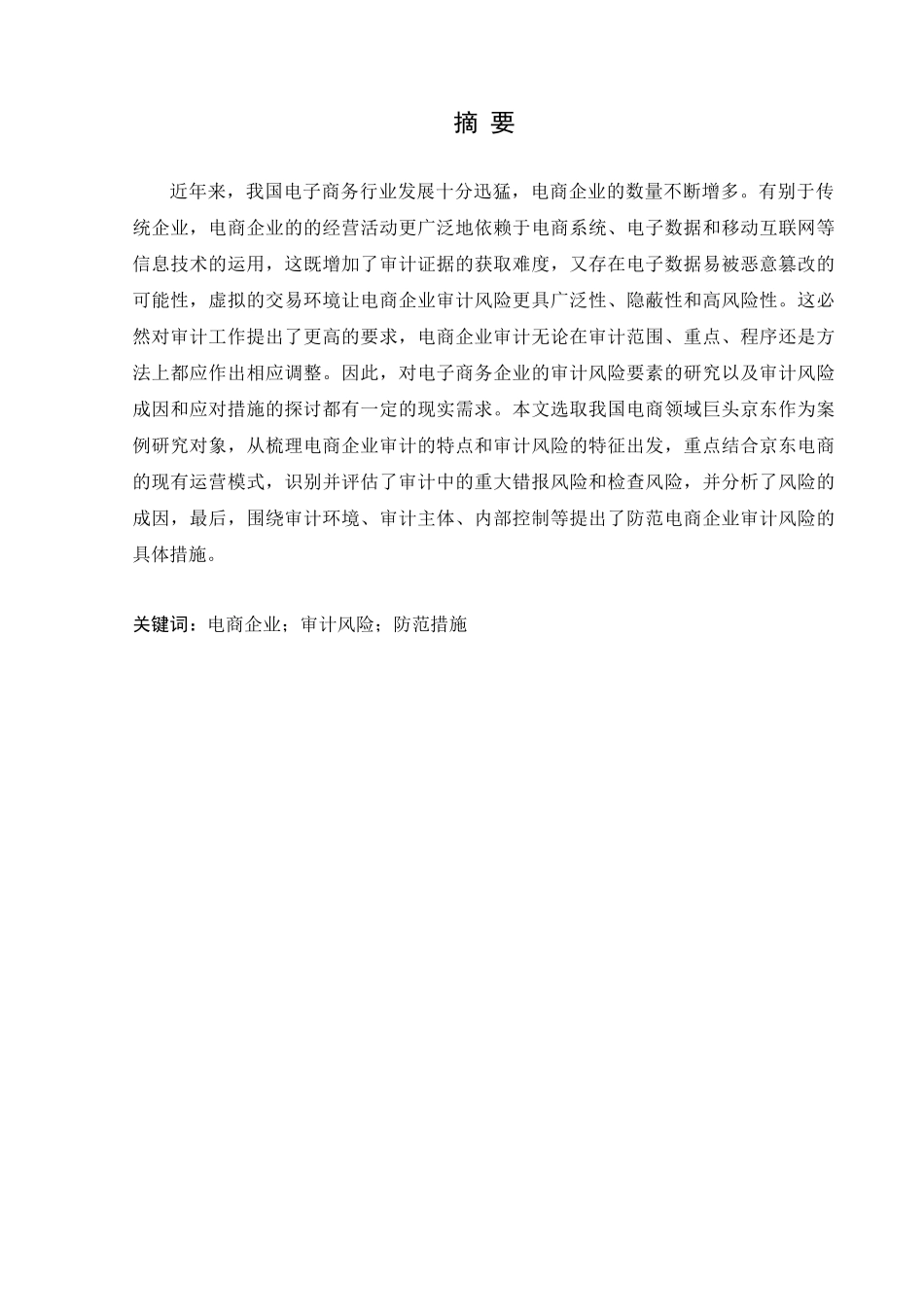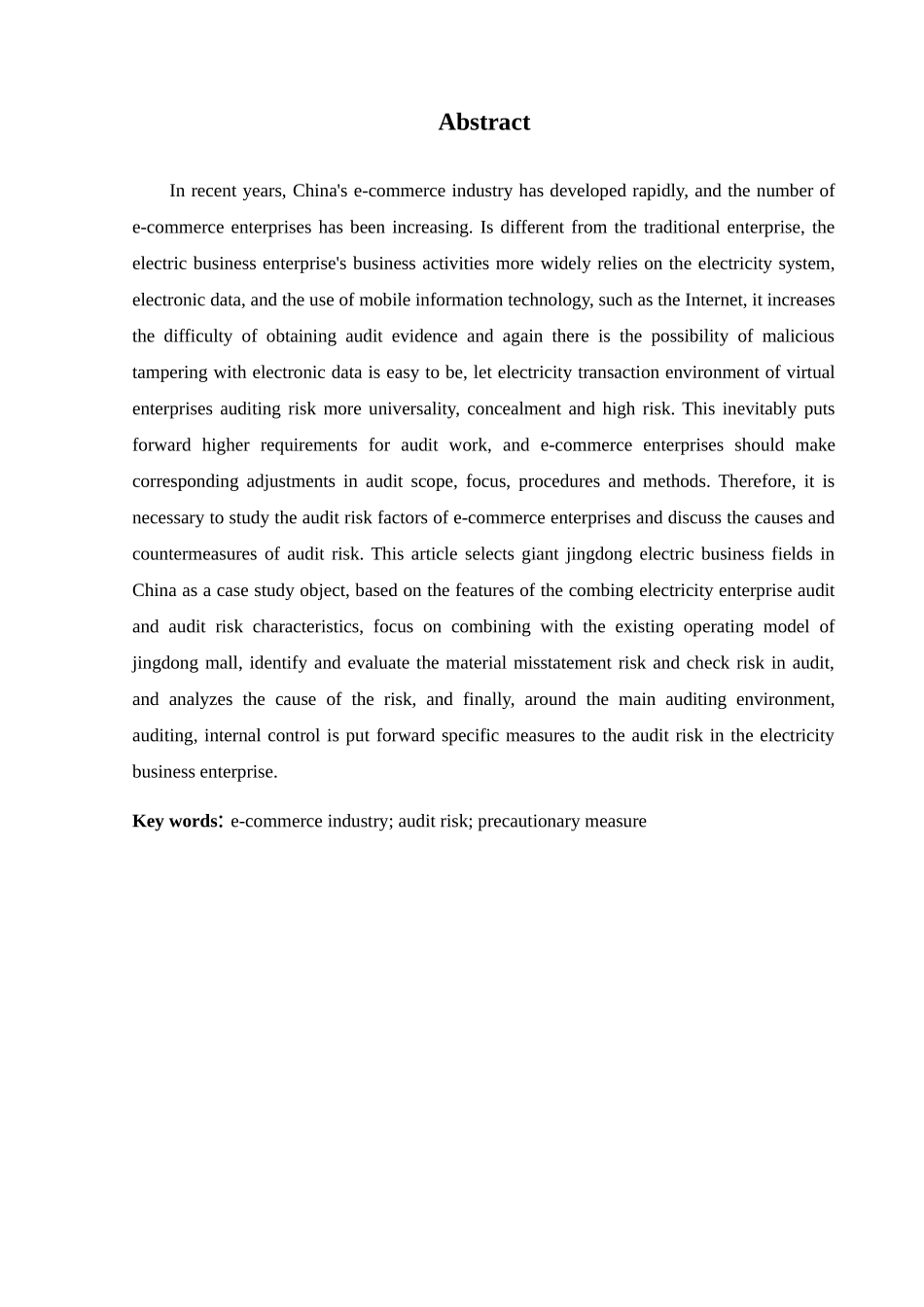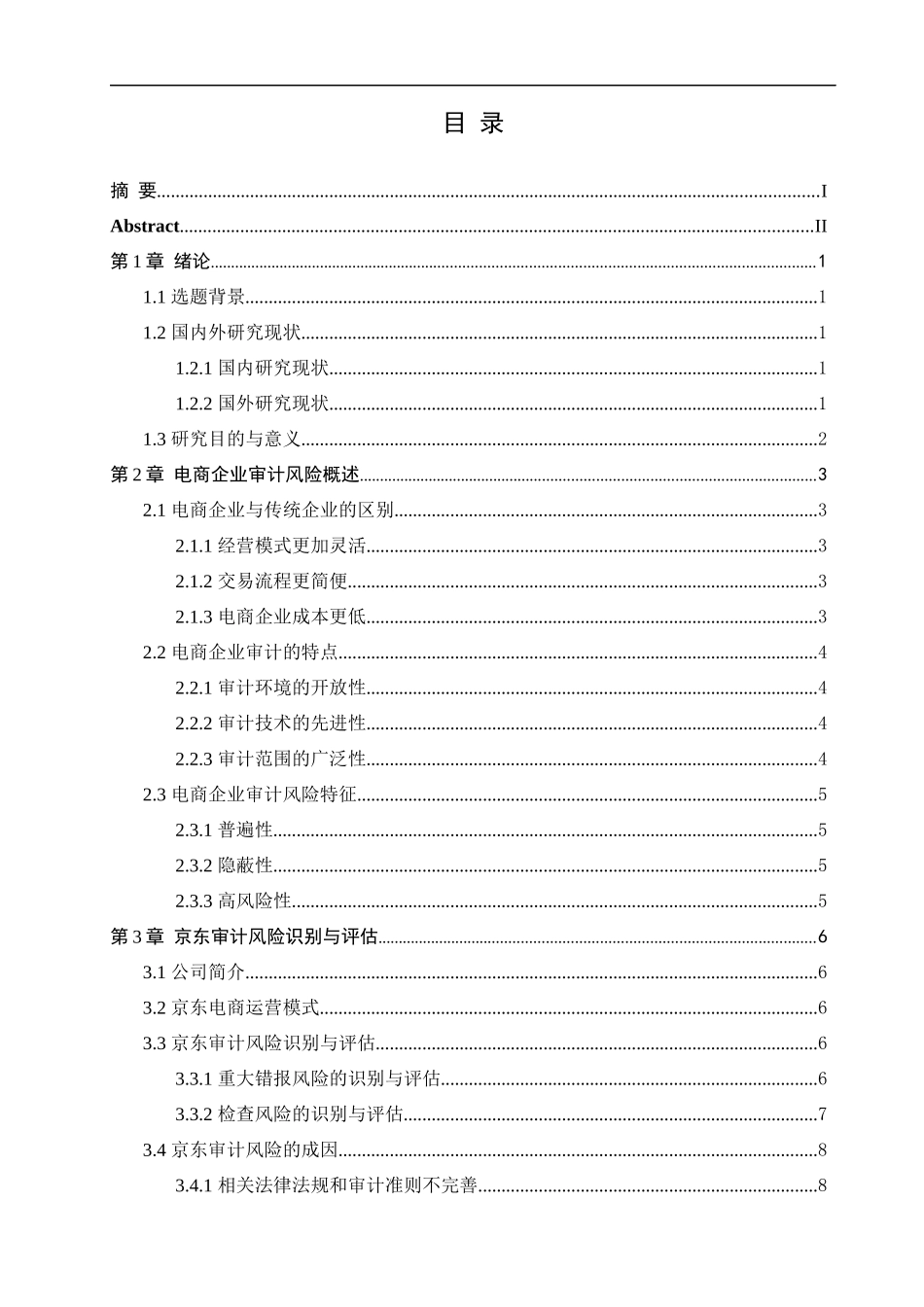摘 要近年来,我国电子商务行业发展十分迅猛,电商企业的数量不断增多。有别于传统企业,电商企业的的经营活动更广泛地依赖于电商系统、电子数据和移动互联网等信息技术的运用,这既增加了审计证据的获取难度,又存在电子数据易被恶意篡改的可能性,虚拟的交易环境让电商企业审计风险更具广泛性、隐蔽性和高风险性。这必然对审计工作提出了更高的要求,电商企业审计无论在审计范围、重点、程序还是方法上都应作出相应调整。因此,对电子商务企业的审计风险要素的研究以及审计风险成因和应对措施的探讨都有一定的现实需求。本文选取我国电商领域巨头京东作为案例研究对象,从梳理电商企业审计的特点和审计风险的特征出发,重点结合京东电商的现有运营模式,识别并评估了审计中的重大错报风险和检查风险,并分析了风险的成因,最后,围绕审计环境、审计主体、内部控制等提出了防范电商企业审计风险的具体措施。关键词:电商企业;审计风险;防范措施AbstractIn recent years, China's e-commerce industry has developed rapidly, and the number of e-commerce enterprises has been increasing. Is different from the traditional enterprise, the electric business enterprise's business activities more widely relies on the electricity system, electronic data, and the use of mobile information technology, such as the Internet, it increases the difficulty of obtaining audit evidence and again there is the possibility of malicious tampering with electronic data is easy to be, let electricity transaction environment of virtual enterprises auditing risk more universality, concealment and high risk. This inevitably puts forward higher requirements for audit work, and e-commerce enterprises should make corresponding adjustments in audit scope, focus, procedures and methods. Therefore, it is necessary to study the audit risk factors of e-commerce enterprises and discuss the causes and countermeasures of audit risk. This article selects giant jingdong electric business fields in China as a case study object, bas...


